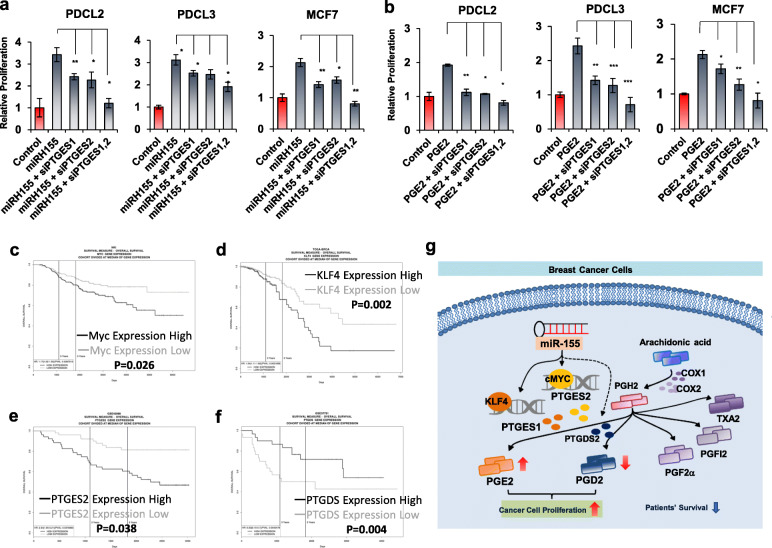Fig. 6.
miR-155 driven prostaglandin reprogramming impact cancer cell proliferation and patients’ survival. a, b Transient knockdown of PTGES/PTGES2 restores miR-155 or PGE2-induced cellular proliferation. The Proliferation of miR-155-low PDC (PDCL2 and PDCL3) or MCF7 were measured after miR-155 overexpression (miRH155, a) or PGE2 treatment (b), in combination with siRNAs for PTGES/PTGES2. c Overexpression of PTGDS attenuates cancer cell proliferation. Two TNBC cancer cell lines were transected with PTGDS expression plasmid and cell proliferation was measured by alamarBlue assay. d-g. Overall survival curves of breast cancer patients determined by the expression status of cMYC(d), KLF4(e), PTGES2(f) and PTGDS(g), using the ProgeneV2 webtool. h Graphical abstract showing the molecular mechanism of prostaglandin reprogramming, regulated by miR-155

